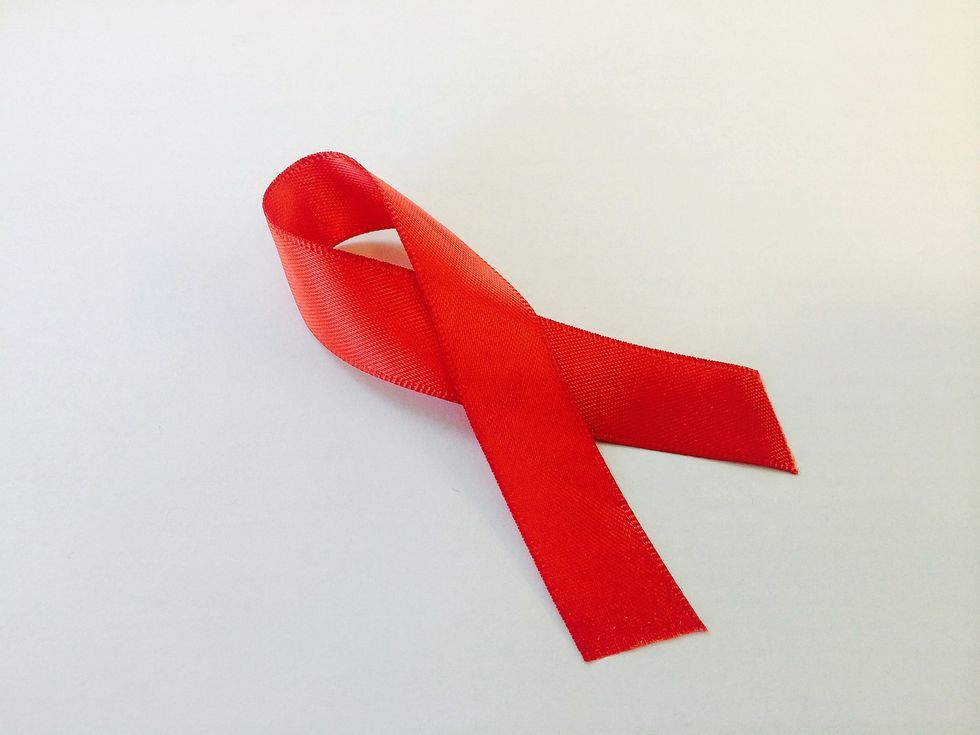We have come a long way since the 1970s in the United States in terms of the treatment of the LGBTQ+ community. No longer is same-sex marriage illegal, or even just the simple fact of being gay, but welcomed with open arms and celebrated in more states than not.
Stigmas onhomosexual men and AIDS are less worried about because the United States now has a community of those who not only support care for those with AIDS, but vocalizing the importance of continuing to find a cure for the horrendous disease that is killing people every year. With progress, however, comes history, and it is important to acknowledge those who used their voice to help shape the future.
On December 6, 1957, the man who became famous for a photo taken during his last few days was brought into this world. David Kirby was raised in a small Ohio town where being gay was seen as wrong, which led him to move away from his family, who at first were not keen on the idea of having a homosexual son.
In the 1970s and '80s, homosexual behavior was still illegal in most states. Normal adult relationships for gays carried the risk of arrest and prosecution as sex offenders. Kirby then moved from his Ohio home to California where he lived in the secretive gay scene in Los Angeles. Realizing that he was doing very well in the area in terms of support from the LGBTQ+ community, Kirby became more vocal for the cause and soon became an activist for the gay community.
One event in particular that sparked attention was in 1978 when the Briggs Initiative tried to ban openly-gay residents from working with children at a nearby public school.This event not only showed many people that the gay community was not going anywhere anytime soon, but gave Kirby the platform to gain attention from not just the public but important figures as well. Kirby quickly gained access to a list of contacts that would later on help raise awareness towards the deadly epidemic of HIV/AIDS.
Up until the 80s, the United States was completely unaware of the poison that was creeping into the continent of North America. The discovery of AIDS did not happen until 1981 when case after case was flooded with homosexual men and drug users, all suffering with PCP with no known impaired immunity.
The diagnosis of Pneumocystis pneumonia was confirmed for all 5 patients antemortem by closed or open lung biopsy. The patients did not know each other and had no known common contacts or knowledge of sexual partners who had had similar illnesses. Two of the 5 reported having frequent homosexual contacts with various partners. All 5 reported using inhalant drugs, and 1 reported parenteral drug abuse. Three patients had profoundly depressed in vitro proliferative responses to mitogens and antigens. Lymphocyte studies were not performed on the other 2 patientswere not performed on the other 2 patients.
This not only sparked attention from the CDC but changed the nation as we know it. America now had a problem that they had no idea existed up until then and when word got out that there was a new epidemic, the public freaked out.
Due to the lack of knowledge on HIV/AIDS, families and friends turned away when finding out that someone they knew were carrying the deadly disease. While the majority of the people hid from the disease, David Kirby stood proud and did all that he could to help…raising awareness and spreading knowledge to others on the topic. Everything changed, however, when Kirby, himself, was diagnosed with AIDS.
In 1987, at the age of 29, David Kirby was diagnosed with AIDS. Unfortunately, during this time, since the disease was so new, there was not any effective treatment, let alone find a cure. Having AIDS during the 20th century was considered a death sentence. Most people who contracted AIDS found themselves having anywhere from a few months to a couple of years to left.
So, with that in mind, Kirby decided that he wanted to do as much as he could during this time, before he had passed on. Despite his estrangement from his family, his request to come home and die around his family was granted, and his family welcomed him home with open arms. As Kirby grew closer to death, his family became unable to take care of him, making Kirby check into an AIDS hospice care unit by 1989. From there, he became close with one of his caregivers, an HIV-positive transgender male by the name of Peta.
Time went on and Kirby's condition only grew worse. At this time, Peta had begun to bring in one of his friends, a graduate journalism student, Therese Frare. With the permission from Kirby's family, Frare began to photograph Kirby and his condition at the end of his life, thus creating the famous photo of him lying in bed dying with his family surrounding him, the picture that shaped AIDS into what we know it as today, ridding of all the myths that people so strongly believed it.
In Tony Kushner's play, Angels in America, the theme of HIV/AIDS is talked about greatly due to some of the characters, Roy Cohn and Prior Walter, to name a few, who are suffering from the disease. While Prior Walter is a good example of a character who compares to David Kirby greatly, Roy Cohn is the exact opposite of Kirby. Kirby was a man who was not necessarily proud of what happened to him, but he acknowledged it and he did something good with it.
Kirby used his voice and knowledge to raise awareness to the cause, not hiding in the shadows being ashamed of who he was – while on the other hand, Roy Cohn was the exact opposite. Cohn was a very powerful man, being a big New York lawyer, could not risk having his personal life get in the way of his career.
So, like any other man who was ashamed at the time to be homosexual, he denied it all. "Because what I am is defined entirely by who I am. Roy Cohn is not a homosexual. Roy Cohn is a heterosexual man, Henry, who fucks around with guys…No, Henry, no. AIDS is what homosexuals have. I have liver cancer" (Kushner, Angels in America, 37; act one).
Roy Cohn, unlike Kirby, would much rather deny, deny, and deny to save his career rather than do something good with it. Unfortunately, this was very common with men who were not "out" so to speak, and with the rise in HIV/AIDS, fewer people came forward to help educate people and make a difference, like Kirby.
We have come a long way since the 1980s in the United States in terms of AIDS. People are no longer living in fear because their friend or family member has AIDS but staying by their side. While the rate of those carrying HIV/AIDS has not gone down, deaths on the other hand have.
We now have the medicine and proper care to help slow the process down, because unfortunately we still do not have a cure. Times have changed drastically in just under 40 years that the United States has known about this disease.
If people continued to stay silent, much like Roy Cohn, the rate that we would have been going at would have been much slower. But thanks to activists like David Kirby, using their voice to express how important this disease is and debunking myths, we no longer see it as "disgusting" or "bad." Yes, it is still a very deadly disease that nobody wants to have, but the amount of support for those who are carrying AIDS has only increased.
David Kirby was not just a homosexual man who died from AIDS. David Kirby was an important AIDS activist who helped change the AIDS culture as we know it to be. If the world had more Roy Cohn's than David Kirby's, perhaps the world would never push further on, and we would be stuck in a never-ending cycle of brushing things under the rug.



















